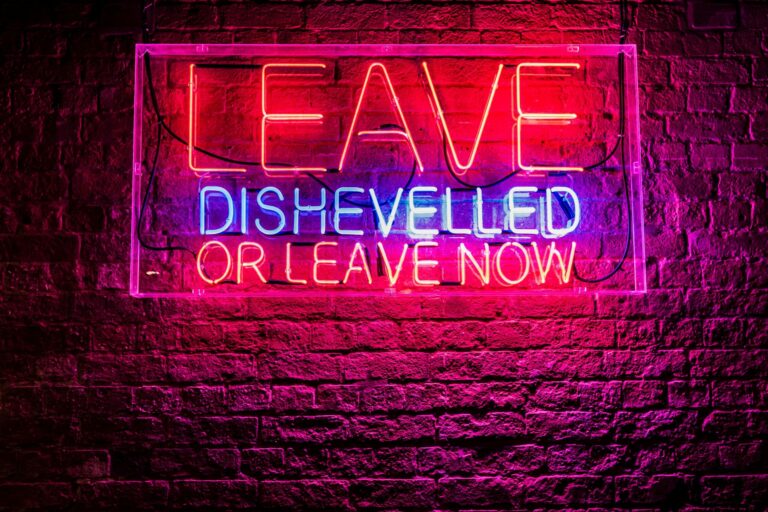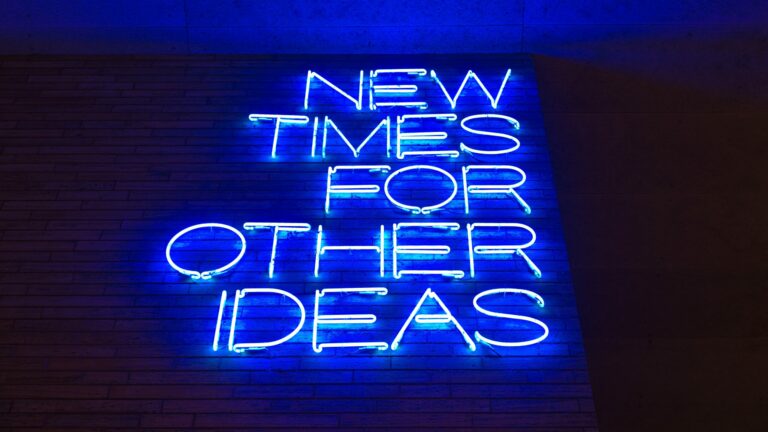Digital Detox #1: Welcome to the Show
Welcome to the 2021 TRU Digital Detox.
Last year, I used the Digital Detox at least in part to introduce myself to the TRU campus and showcase my priorities in my new role as Coordinator, Educational Technologies. My big thing was hope. Hope! Yes, venture capitalism and surveillance tech and corporate edtech are things that are bad, but if we maintain hope, we can overcome those negative qualities. A pedagogy of hope: that was my thing. I was the hope girl. Brenna is the thing with feathers.
Then, you know, *gestures wildly*.
Working in educational technologies in the midst of a global pandemic that has forced a mass movement of learners into the digital space has been the single most daunting undertaking of my life, professional and personal — and I’ve been parenting a three year old through this whole mess. The work, as many of you reading this will be all too aware, has been endless. Sisyphean. The same is true for the end users of educational technologies, faculty and students alike. And we are all so profoundly, deeply exhausted, that keeping the lights on — delivering content, completing assessments — is all we can manage to do. If we can manage to do it. Our colleagues are being laid off or taking early retirement, our students are dropping to part time and then out the door entirely. We can all be forgiven for choosing to skip that meeting, scan that document, or check out all together from the components of our jobs that seem to take so much and give so little.
But this is where I get worried. As I look at the landscape of education in early 2021, I see so many troubling trends being undertaken under the guise of pandemic management. Suddenly we need eproctoring and analytic, algorithmic tracking of our students; in the name of “robustness” we cast aside open tools and embrace corporate tools that are offered with increasing price tags and decreasing supports; our students are being sold “solutions” for the textbooks and their homework and their engagement, and in exchange they part not only with their money but with their data. And a lot of big players are getting bigger. And richer. It’s classic disaster capitalism, academic-style: strike when we’re all way too tired to attend to matters of governance.
Here in BC, I knew we were rewriting the world in a bad way when, instead of frantically showcasing, supporting, resourcing, and building up the existing robust in-province technical infrastructure, we responded to the move online by loosening our privacy protections, enabling a large-scale embrace of private, for-profit digital tools, many of which were not designed or implemented with education in mind (yes, I mean Zoom). While at the time the decision made sense — get students online with the least hassle and headache — it’s emblematic of all we have given up, not just in BC but across the world, in the wake of the pivot. How much do these tools know about you? Do you meet your doctor on Zoom, or your psychiatrist — and is that the same Zoom account your company set up for you? Zoom only announced their end-to-end encryption at the end of 2020. Here in BC, I’m sadly confident that we will never get the rights originally enshrined in FIPPA back: the relationship between tech and privacy just doesn’t work that way.
But we’ve also learned a lot about who education is for in the last year, and the news hasn’t been good. For some students, balancing their online classes with work or family has been helpful, but others have found new barriers. How are our institutions supporting students whose home lives or access to technology make synchronous study inside the house impossible, who agonize over going on camera and showing how they live, whose skin colour isn’t read correctly by the algorithmic processes, whose disabilities are suddenly their own issue to accommodate alone and without added resources? These are problems that cannot be fixed with technology, only with pedagogy, policy, and practice. But where did your university spend more new money last year: on critical digital pedagogy, or on eproctoring contracts?
The 2021 TRU Digital Detox theme is the post-pandemic university. I want us to imagine ourselves a year from now, living with the agreements we’ve signed and the rights we’ve signed away, and ask ourselves if this university we rebuilt in a moment of crisis is really the one we want to live and work in. In 2020, I promised to help you detoxify your relationship to technology. In 2021, I’m wondering if detox is even possible, or if we have gone too far into a world of private profit and public loss to claw our way back. And along the way, I’m hoping we can build a roadmap together of what “build back better” looks like for a postsecondary system whose inequities and priorities have been laid bare, for better or (mostly) for worse.
I’m done with hope. I’m mostly done with optimism. What I am aiming to achieve in the next eight weeks is to hold your attention so you can hold your institutions to account. Because the only way out of this is if we can decide as a grassroots academic community of students, staff, and faculty what we want the next phase to look like. Only then does building back better become possible.
That’s not to say we won’t have fun over the next few weeks: there will be sarcasm, there will be snark, I will try not to get sued, and although I claim I’m all out of hope, the very act of imagining past our current circumstances is a hopeful one. Thanks for joining me on this complicated journey.
Remember, it’s not too late to register for the synchronous Digital Detox chats (the first one is today!), and you can also share thoughts in the comments below. Today I’m asking:
- What worries you about the trends you see in educational technologies today?
- Where do you find space for joy, hope, and forward momentum?







This is brave and powerful sharing, Brenna. That your thoughts resonate with mine, and your fears and concerns echo my far less informed or articulate ones, is both bracing, and also alarming.
I don’t engage in social media, so am not even sure I’m doing the right thing commenting, here and like this… but am going to do it anyway. Mainly as a thank you for sharing.
Elizabeth! Replying in this way is perfect and appropriate. I’m glad today’s essay resonated with you. I love the possibilities of technology but I’m clear-eyed about risk and harm, and the moment I’m concerned we’re on a precipice of harm overtaking utility. I would love to be wrong…